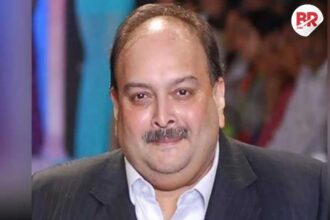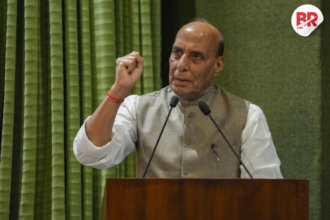
India is still mourning the recent Pahalgam attack, a grim reminder of the persistent terror threats looming from across the Pakistan border. But as the nation grapples with grief and rising security concerns, a fresh controversy has erupted—this time not from enemies abroad, but from within our own political system.
On Monday, Karnataka Minister Dinesh Gundu Rao accused Prime Minister Narendra Modi of “politicizing the Pahalgam tragedy” to sway voters in the upcoming Bihar elections.

His remarks came just a day after the Congress party reportedly issued a gag order to its members—raising eyebrows over internal dissent and calculated timing.
What Does This Mean for the Average Indian?
For everyday citizens already concerned about national security, these remarks feel more like salt in a fresh wound. India is facing a sustained proxy war from Pakistan-backed terror outfits, and instead of standing united, parts of the opposition are now accusing the Prime Minister of using a terror attack as political fuel.
In a moment when we need solidarity, this blame game risks deepening public mistrust and emboldening enemies watching from across the border.
From Pulwama to Pahalgam: Pattern or Provocation?
Rao’s exact words were sharp:
“Pulwama helped him in Lok Sabha elections, Godhra helped him in Gujarat, and now he is using Pahalgam for Bihar.”
Such statements don’t just question the Prime Minister—they undermine the sacrifices of our security forces, the grief of victims’ families, and the seriousness of India’s fight against terrorism.
Critics may argue that politics and tragedy often mix, but drawing a straight line from terror attacks to electoral benefits isn’t just cynical—it’s anti-national. It erodes the trust Indians place in their democratic process and suggests a level of manipulation that borders on conspiracy theory.
Congress and the Gag Order: A Mixed Message?
The Congress party’s reported gag order, coming right before Rao’s statement, only deepens the confusion. Was Rao going rogue? Or was it a well-timed provocation disguised as dissent? Either way, the message it sends is one of disarray within the opposition, and worse, a lack of responsibility during a national crisis.
Congress X handle violates its own gag order, feeds Pakistan with more fodder to attack India
Tune in to LIVE TV for all the fastest #BREAKING alerts – https://t.co/54fli6stWH pic.twitter.com/gCTFJ04sqp
— Republic (@republic) April 29, 2025
This isn’t a moment for parties to point fingers—it’s a moment for unity. Because while we bicker, Pakistan-backed terrorists don’t pause for press conferences.
A Dangerous Time to Divide
India’s security agencies have been warning of increased infiltration attempts and cross-border provocations. The Pahalgam attack fits a disturbing pattern, and the last thing the country needs is a political circus in its aftermath.
While political discourse is healthy in any democracy, weaponizing tragedy to score electoral points—especially without evidence—only divides the nation and distracts from real threats. As Prime Minister, Modi is expected to address national issues, respond to tragedies, and rally the nation. Doing so isn’t exploitation—it’s his constitutional responsibility.
The Truth: Unity Is the Real Strength
Let’s call this what it is: a test of our political maturity. Allegations like Rao’s may grab headlines, but they also risk fracturing public morale when unity is most needed. Terrorism isn’t a party issue. It’s a national threat—and no leader should be vilified for addressing it.
As India prepares for elections, voters deserve to know what their leaders stand for, not just what they stand against. It’s time we rise above cheap shots and remember that real strength lies in facing adversity together, not tearing each other apart.
Also Read Tharoor’s Surprising Take: Defending Pahalgam Attack Response with an Israel Analogy












